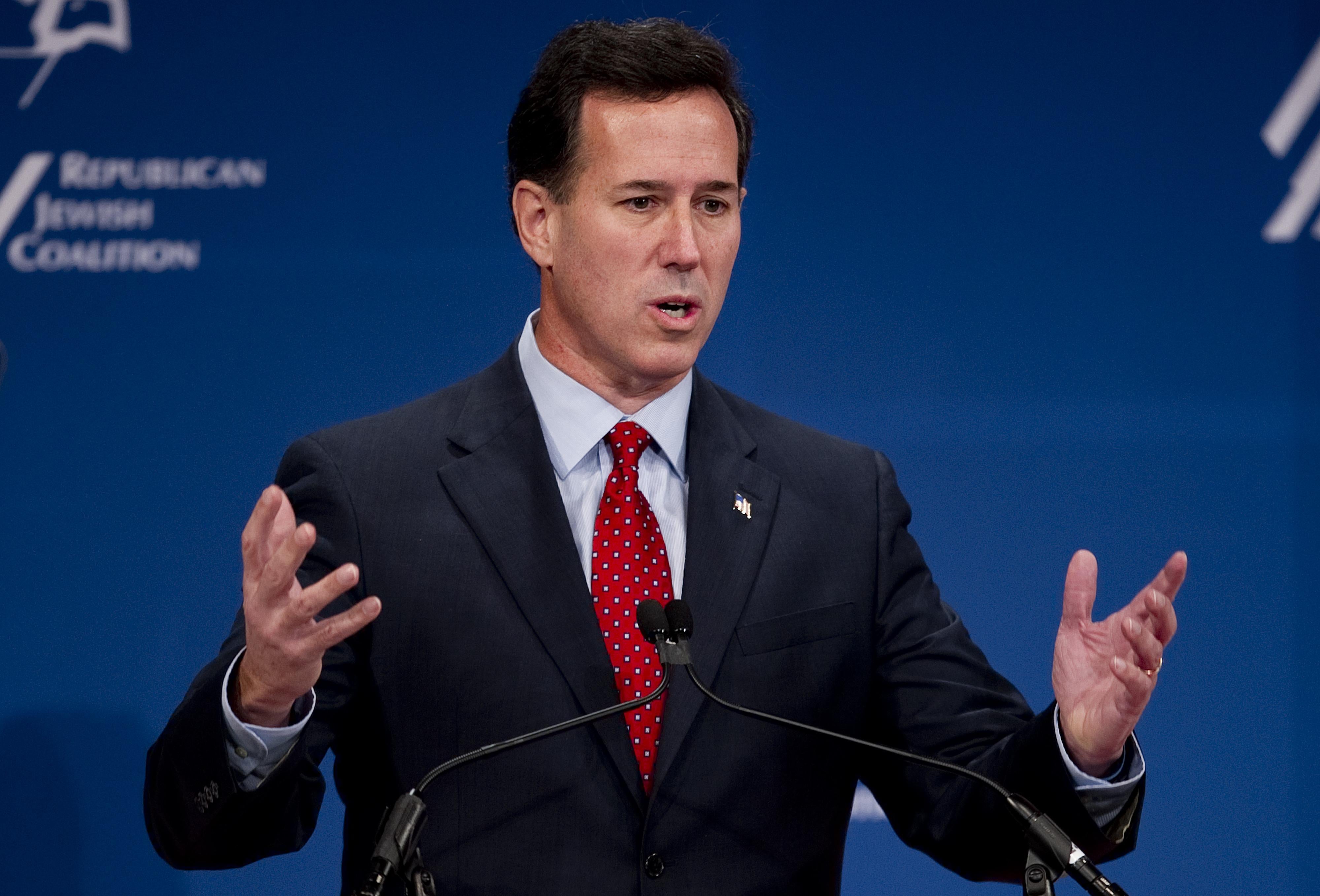My day will be spent at one of the last full-on cattle calls of the cycle: The Republican Jewish Coalition’s big meet in downtown D.C. Six Republican candidates have been summoned to the Ronald Reagan Building. No Gary Johnson, no Buddy Roemer, and no Ron Paul – even though the last guy is in the top three in Iowa and New Hampshire. Why? The organization opposes his “extreme views” and considers him “so outside the mainstream” that he’s not worth bringing in. RJC members are spared a lecture about how Israel doesn’t need American aid; Paul is spared a chorus of boos.
The morning began with Rick Santorum, as all good mornings do. He was on lush, comfortable turf, spinning a narrative of how he spent his time in the Senate goading the Clinton and Bush administrations to get tougher on Iran, with sanctions that would “cripple” them, and how he has spent the Obama years, pulling out his hair and raging about their fecklessness.
“In the campaign, he said Iran is a ‘little country,’” said Santorum, quoting Obama. “Iran is not a little country.”
One problem: President Obama didn’t call Iran a “little country.” In 2008, he brushed off the idea that Iran presented an “existential threat” to America.
Iran, Cuba, Venezuela — these countries are tiny, compared to the Soviet Union. They don’t pose a serious threat to us the way the Soviet Union posed a threat to us. And yet, we were willing to talk to the Soviet Union at the time when they were saying, ‘We’re going to wipe you off the planet.’ “And ultimately, that direct engagement led to a series of measures that helped prevent nuclear war, and over time, allowed the kind of opening that brought down the Berlin Wall,” Obama continued. “Now, that has to be the kind of approach that we take. You know, Iran, they spend one-one hundredth of what we spend on the military. If Iran ever tried to pose a serious threat to us, they wouldn’t stand a chance.
I’ve always read “existential threat” as a “threat that can obliterate something,” and Obama said Iran couldn’t obliterate the United States. This, said Santorum, was naive – and he would double down when a questioner accused him of not seeing Iran as an “existential” threat.
“It will be the United States,” he said, “not Israel, that prevents Iran from building a nuclear weapon.”
Exactly what the crowd wanted to hear. But the sense here is that Santorum is a sideshow to the Gingrich-Romney test. Former Bush spokesman Ari Fleischer, an RJC board member, told me that Santorum would do fine among voters who liked a “muscular foreign policy.” But: “He’ll mention serving on the Armed Services committee. People tune out when they hear ‘committee.’” Santorum’s experience, for whatever reason, doesn’t thrill like Gingrich’s does.
